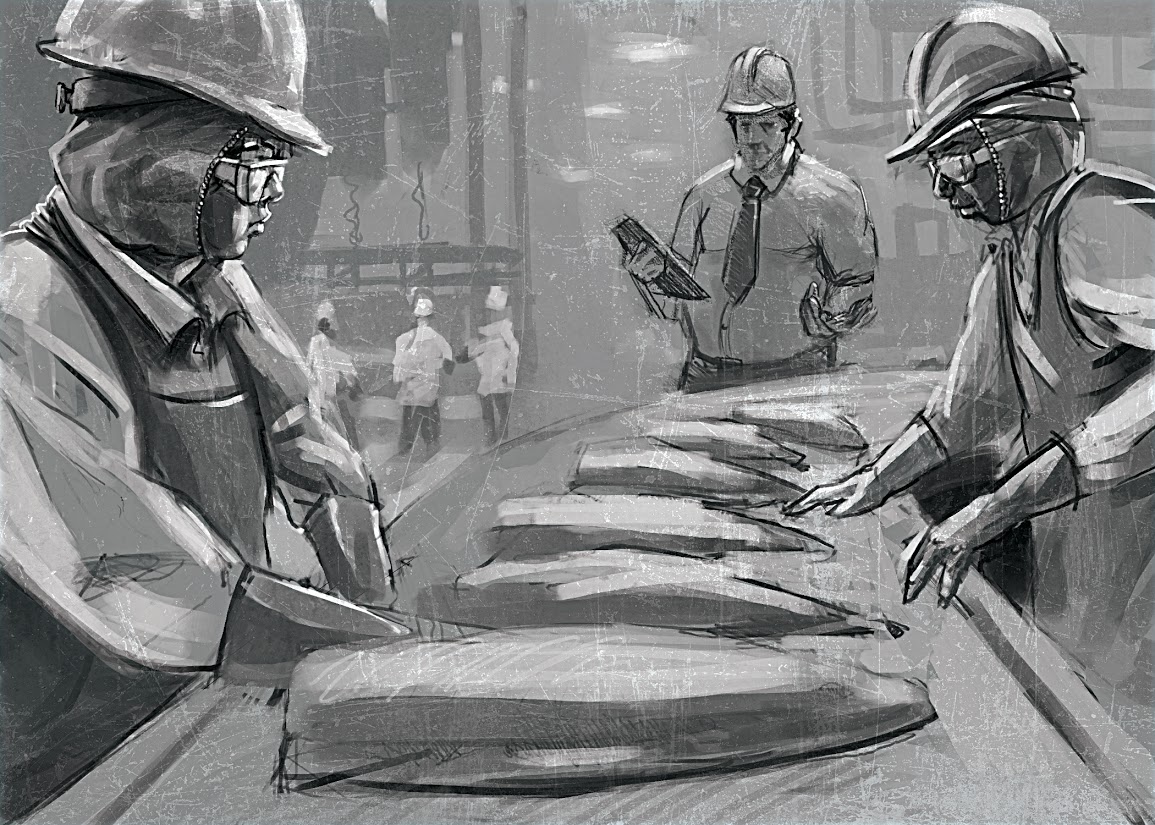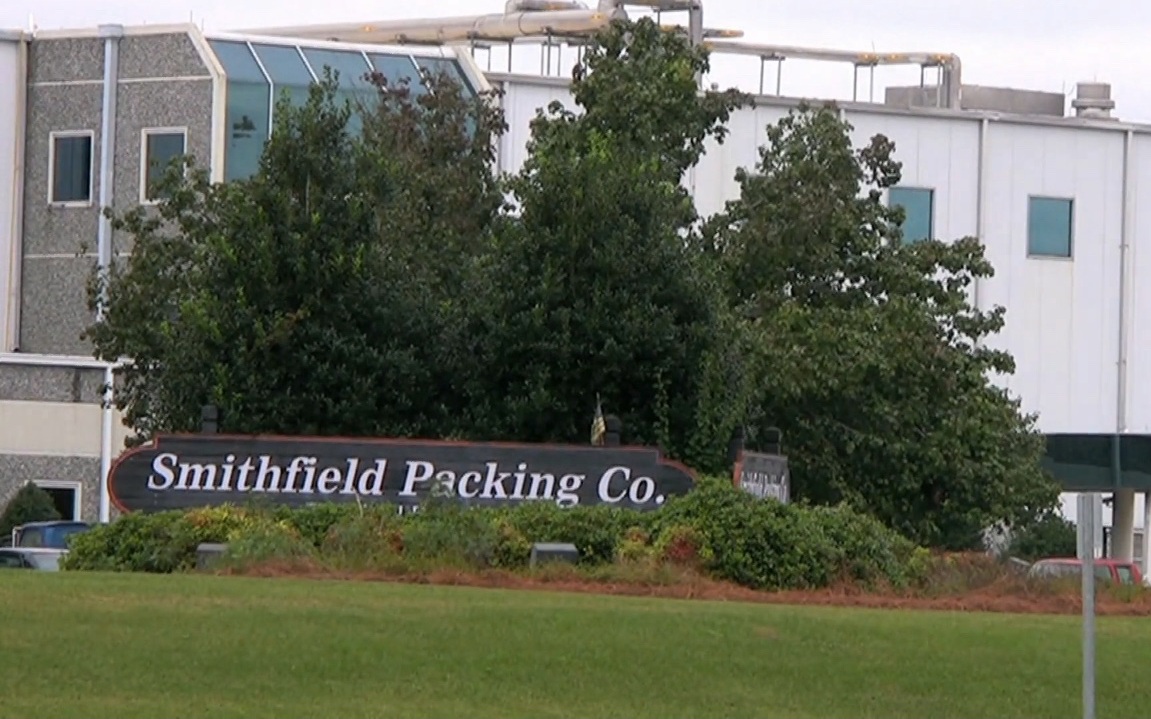“I just had to get the fear out. Once I got the fear out of me, I was good to go. There wasn’t no stopping me.”
Synopsis
Union Time: Fighting for Workers’ Rights follows the story of workers at the Smithfield Pork Processing plant in Tar Heel, North Carolina, who fought for safe, fair working conditions – and won. It goes beyond hype about unions (from both sides) to show how people standing together can break the cycle of poverty and injustice. It also demonstrates the convergence of labor rights and civil rights, carrying on the legacy of Rev. Martin Luther King, Jr.
Since the Smithfield facility opened in Tar Heel in 1992, meatpacking workers endured dangerous working conditions, intimidation, and low pay. Fast line speeds and lack of job training led to amputated fingers, knife injuries, repetitive stress injuries, concussions, and broken limbs. One worker died when he was sent to clean out a tank filled with toxic fumes without standard OSHA safeguards.
In 1993, the United Food and Commercial Workers Union (UFCW) began working with employees in the plant. When a union election was held in 1994, the union lost. A second election in 1997 also resulted in a no-vote, thanks in part to Smithfield’s union-busting tactics. The company escalated the systemic intimidation of workers, threatened to close the plant if workers unionized, fired workers who supported the union, tried to turn African American and Hispanic workers against each other, and beat up union organizers.
The UFCW filed a number of grievances with the National Labor Relations Board, which in 2006, after many years in court, found Smithfield guilty of multiple violations and fined the company $1.1 million in back pay.
A turning point came when organizers engaged the broader community in the struggle. The UFCW launched the Justice@Smithfield campaign to make the public aware of the situation in Tar Heel. Rev. William J. Barber II of the NC NAACP and many other religious leaders described the cause as a merging of labor rights and civil rights. Jobs with Justice, the United Church of Christ, the Beloved Community of Greensboro, NC, and many other churches and religious denominations across the country publicized the campaign.
Hispanic workers faced special challenges. In 2006, they had to respond to “no-match” letters that demanded proof of a valid Social Security number. (Any employer has the responsibility to verify legality of employment upon hiring, but when the law is not followed, it gets blamed on the employee, not the employer.) Immigration officials took immigrant employees into custody in the plant and, during early-morning raids, at their homes.
Definition of No-Match letters, National Immigration Law Center
“I have been in this business for thirty years, and I have never seen a more courageous group of workers.”
Imagine being a worker in the Tar Heel plant, facing threats that you will lose your job if you talk about the union, enduring daily indignities such as not being able to go to the bathroom, being called a liar when you report an injury, or being yelled at for no reason at all. Imagine the courage it takes to stand up against a multinational corporation that will be happy to replace you with another worker if you step out of line. The Tar Heel workers refused to give up despite the failed elections in 1993 and 1997.
Within the plant, small victories made the long wait bearable. In response to the no-match letters, Hispanic workers staged a walkout, forcing the plant to a standstill. Workers in the livestock department sat down on the job to protest hot, unsanitary drinking water supplies, and their demands were met. Smithfield forbade workers from writing pro-union slogans on their hard hats but quickly had to back down and allow workers their First Amendment rights. And when Smithfield refused to honor Martin Luther King Day in January 2007, workers of all backgrounds stayed home. The company finally offered Martin Luther King Day as a paid holiday in 2008.
In a final attempt to squelch the pro-union movement, in August 2007 Smithfield filed a RICO (Racketeering Influenced and Corrupt Organizations) lawsuit against UFCW officials, union organizers, and other labor groups, claiming financial damages through union campaign activities. In the hours before the case was to come to trial, the company and the union reached a settlement and set an election date of December 10–11, 2008. At that election, the workers voted to form Local 1208 at the Tar Heel plant, in what has been called the greatest union victory of the 21st century.
A four-year contract was approved in July 2009 and renewed in 2013 and 2017. Now, in 2019, the 5,000 workers at the Tar Heel plant have fair working conditions, better wages, and above all, respect. And the benefit for Smithfield Foods? Having a motivated, stable workforce increased production in the first year after the union contract.
Working conditions are better at the Tar Heel facility, in contrast to nonunion poultry, pork, and beef processing plants across the United States, where dangerous working conditions and abusive behavior continue. The Tar Heel victory demonstrates that, even in an anti-union climate, forming a union is possible, even essential for worker safety and well-being.








